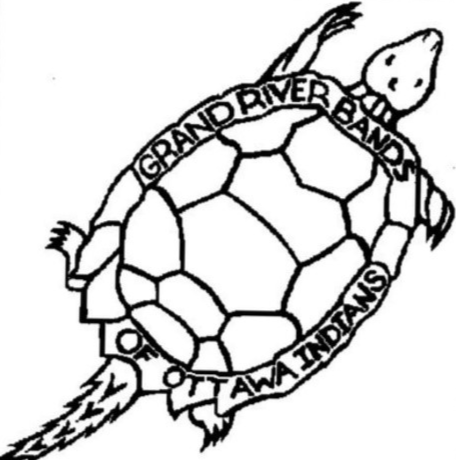U.S. Senators Gary Peters (D-MI) and Debbie Stabenow (D-MI) have introduced legislation aimed at granting federal recognition to the Grand River Bands of Ottawa Indians (GRB). The Grand River Bands of Ottawa Indians Restoration Act would not only provide federal recognition but also make the tribe's members eligible for various federal benefits, including tuition assistance, healthcare, and housing support. U.S. Representative Scholten (D-MI-03) has introduced companion legislation in the House.

The Grand River Bands of Ottawa Indians is a sovereign Native nation with agreements with the federal government dating back to 1795. Originally comprising 19 bands of Ottawa people living along the Grand River and other waterways in southwest Michigan, most current members reside in Kent, Muskegon, and Oceana counties.
“For decades, the Grand River Bands of Ottawa Indians has been working to gain federal Tribal recognition,” Sen. Peters said. “This bill would finally give them the recognition they deserve, bringing federal resources to its members and protecting their Tribal lands for future generations.”
“The Grand River Bands of Ottawa Indians have deep roots in Michigan going back generations,” Sen. Stabenow said. “The tribe is recognized by the State of Michigan, but not by the Department of Interior. This legislation would finally grant federal recognition to this tribe.
“On behalf of the Grand River Bands of Ottawa Indians, I thank Sen. Peters and the delegation members who introduced and co-sponsored this bill. After decades of delays, this bill brings renewed hope that our Tribe will achieve federal recognition and our members will gain access to the resources they deserve, including critical funding for social services, education, housing, elder care, exercising our treaty rights and weighing in on federal legislation that impacts tribes. We are grateful to Sen. Peters for his leadership and dedication to justice for the Grand River Bands,” said Ron Yob, Chairman of the Grand River Bands of Ottawa Indians.
The legislation has garnered support from community partners and local government leaders, including the Lower Grand River Organization of Watersheds and the West Michigan Plumbers, Fitters and Service Trades, along with various stakeholders throughout Michigan. Rep. Scholten’s House companion bill is backed by Representatives John Moolenaar (R-MI-02), Dan Kildee (D-MI-08), Jack Bergman (R-MI-01), Lisa McClain (R-MI-09), Tim Walberg (R-MI-05), Haley Stevens (D-MI-11), Elissa Slotkin (D-MI-07), and John James (R-MI-10).
More Stories Like This
Native News Weekly (August 25, 2024): D.C. BriefsUS Presidents in Their Own Words Concerning American Indians
Federal Judge Orders ICE to Halt Use of Pepper Spray, Arrests of Peaceful Protesters in Twin Cities
Tunica-Biloxi Cultural Leader John D. Barbry Walks On
Next on Native Bidaské: Federal ICE Activity in Minneapolis: Ruth Buffalo’s Perspective
Help us defend tribal sovereignty.
At Native News Online, our mission is rooted in telling the stories that strengthen sovereignty and uplift Indigenous voices — not just at year’s end, but every single day.
Because of your generosity last year, we were able to keep our reporters on the ground in tribal communities, at national gatherings and in the halls of Congress — covering the issues that matter most to Indian Country: sovereignty, culture, education, health and economic opportunity.
That support sustained us through a tough year in 2025. Now, as we look to the year ahead, we need your help right now to ensure warrior journalism remains strong — reporting that defends tribal sovereignty, amplifies Native truth, and holds power accountable.
 The stakes couldn't be higher. Your support keeps Native voices heard, Native stories told and Native sovereignty defended.
The stakes couldn't be higher. Your support keeps Native voices heard, Native stories told and Native sovereignty defended.
Stand with Warrior Journalism today.
Levi Rickert (Potawatomi), Editor & Publisher


